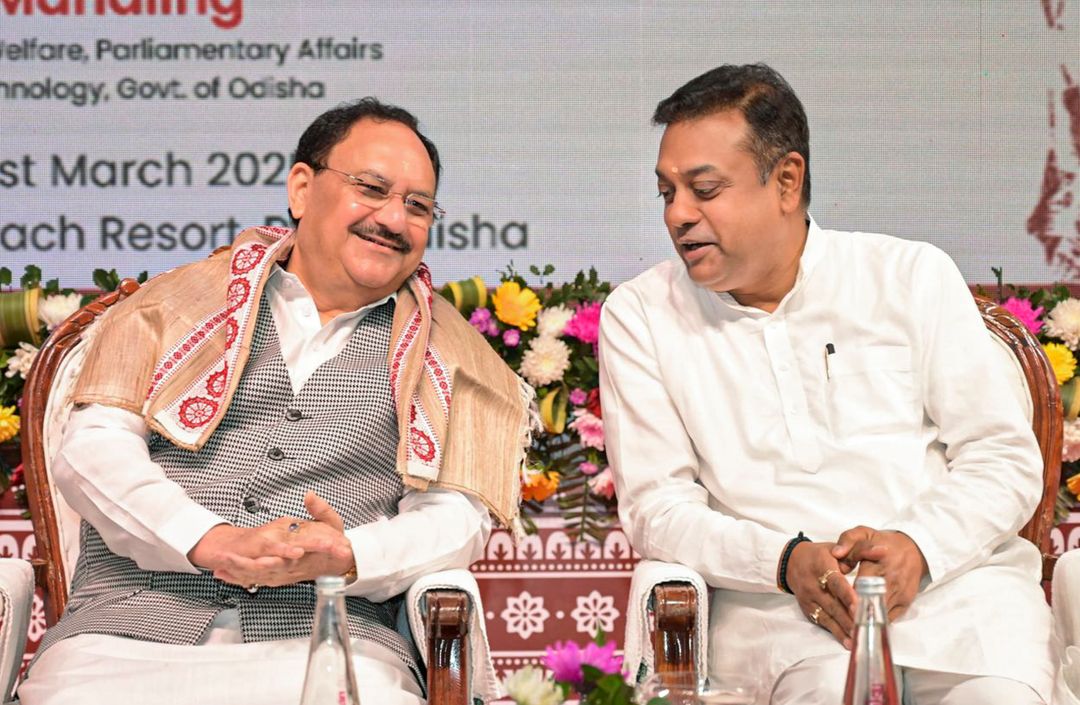Bhubaneswar, February 28, 2025: Union Health Minister J P Nadda announced on Friday that India is on track to eliminate tuberculosis (TB) by the end of 2025, five years ahead of the global target set by the Sustainable Development Goals (SDG) for 2030. Nadda made this significant statement while inaugurating the 9th National Summit on Good and Replicable Practices and Innovations in Public Healthcare System, held in Puri, Odisha.
Organized by the Ministry of Health and Family Welfare (MoHFW), the two-day summit aims to highlight successful healthcare strategies and encourage their implementation across the nation.
Aggressive Campaign towards 'TB Mukt Bharat'
Addressing the gathering, Minister Nadda highlighted India's ambitious TB eradication campaign, the "100-day TB Mukt Bharat," which has already identified around 5 lakh TB patients across 455 districts. Emphasizing the government's commitment, he stated, "An extensive campaign is underway, and we will extend it to all aspirational districts and blocks. With these efforts, India will achieve the target of eliminating tuberculosis by the end of 2025."Nadda also urged healthcare officials to involve public representatives more effectively in healthcare initiatives, treating them as vital spokespersons and messengers for government policies. He advised participants, “Take Panchayati Raj Institutions (PRI) and public representatives on board for improved execution of the TB Mukt Bharat campaign, collaborating with 22 line departments for greater impact.”
Tackling Non-Communicable Diseases and Environmental Health
The minister expressed concern over the increasing incidence of non-communicable diseases (NCDs), attributing this rise partly to environmental degradation. Highlighting Prime Minister Narendra Modi’s call for reducing household oil consumption by at least 10 percent, Nadda urged healthcare officials to adopt a holistic approach towards public health education and awareness.Strengthening Primary Healthcare Infrastructure
Addressing the healthcare infrastructure gap, Nadda stressed the importance of enhancing primary healthcare centres (PHCs) to ensure quality and accessible medical care for India's 1.4 billion population. Recognizing the nationwide shortage of medical professionals, he emphasized the critical role of telemedicine, advocating for the expansion of specialist consultations to PHCs and Ayushman Arogya Mandirs through a hub-and-spoke model.Minister Nadda also called for increased adoption of drone services, particularly in challenging terrains such as remote and hilly areas, to facilitate timely healthcare delivery.
Ensuring Proper Utilization of Healthcare Funds
Expressing the government's readiness to allocate substantial financial resources, Nadda highlighted the establishment of 22 All India Institutes of Medical Sciences (AIIMS) within the past decade. He emphasized, however, that proper utilization of funds allocated under the National Health Mission (NHM) is crucial for ensuring sustainable improvements in healthcare quality at the grassroots level.Universal Screening Program for Early Disease Detection
Minister Nadda also discussed the ongoing universal screening campaign launched on February 20, targeting early detection of diabetes, three types of cancer, and other chronic diseases. Set to run until March 31, the campaign aims to reach approximately 37 crore citizens. "Our goal is to create massive awareness so every individual in the country is informed about the healthcare facilities provided by the government," he added.Under the Ayushman Bharat initiative, he noted, around 90 percent of cancer cases have been detected at early stages and treatment initiated within 30 days of detection.
To further enhance cancer care infrastructure, Nadda announced plans to open 200 daycare centres for cancer patients this year, with an objective to establish at least one such centre in every district by the following year.
Odisha Committed to Improving Health Infrastructure
Speaking at the summit, Odisha Chief Minister Mohan Charan Majhi reaffirmed the state's commitment to expanding healthcare infrastructure. He highlighted the upcoming 100-bed National Institute for Yoga & Naturopathy, whose foundation stone was laid by Prime Minister Modi in October 2024.Majhi also announced state initiatives to strengthen 7,358 urban and rural PHCs and sub-centres, transforming them into Ayushman Arogya Mandirs offering comprehensive primary healthcare, wellness programs, and yoga facilities. "In the coming year's budget, we have allocated funds for constructing new buildings for 1,338 Ayushman Arogya Mandirs," he said.
Moreover, Chief Minister Majhi discussed Odisha's focused interventions through the ongoing 100-day intensified TB campaign, specifically targeting 20 high-priority districts.
The inaugural event was attended by Odisha Health Minister Mukesh Mahaling, Union Health Secretary Punya Salila Srivastava, and National Health Mission Managing Director Aradhana Patnaik, among other senior officials.
